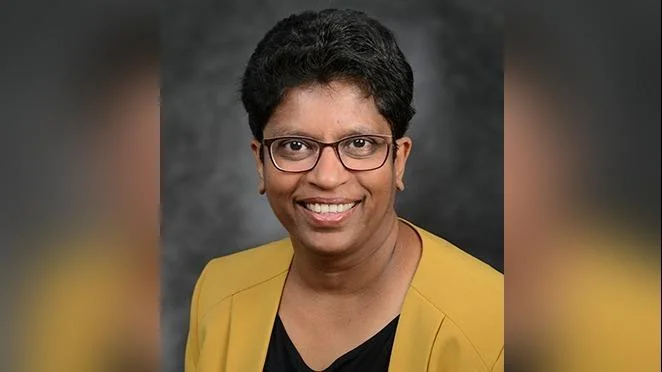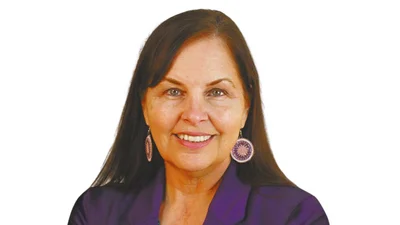Madhavi Marasinghe CIO | University of North Dakota
Madhavi Marasinghe CIO | University of North Dakota
Scott Snyder, vice president of Research & Economic Development at the University of North Dakota (UND), addressed faculty members on December 11 about the growth of the Early Career Scholars Program. Now in its third year, the program aims to support new faculty by pairing them with mentors for cross-collegiate research projects.
The program has expanded significantly since its inception. The first cohort in 2023 included four research groups, which increased to six in 2024 and is expected to reach eight groups next year. "It’s really exciting to welcome and celebrate the achievements and contributions of our early career scholars here at UND," Snyder said.
The program's expansion is mirrored by an increase in external funding. The Economic Diversification Research Fund, appropriated by the Legislature in 2023, provided $523,000 for three cohorts. The initial two cohorts received approximately $300,000, generating $1.1 million in additional external funding.
Snyder expressed his willingness to discuss this success with state lawmakers as evidence of a "really good return on investment." He acknowledged several individuals who contributed to developing and supporting the program: John Mihelich, Michael Mann, Thomasine Heitkamp, and Justin Berg.
During the event, President Andy Armacost and Provost Eric Link presented plaques to fifteen faculty members from six research teams. Both administrators shared personal anecdotes about their early interest in science.
One scholar highlighted was Akorede Teriba, assistant professor of Counseling Psychology. Teriba is working on a mental health initiative for athletes alongside Radomir Ray Mitic under Rachel L. Navarro's mentorship. Teriba emphasized that student-athletes face unique pressures requiring psychological fortitude.
The article lists several other research projects within the program:
- Ayush Asthana leads a project on molecular electronic structure using neural networks.
- Francisco Del Canto Viterale explores geopolitical implications on space propulsion technologies.
- Mahmut S. Ersan works on water treatment methods using carbon quantum dots.
- Binglin Sui focuses on nanomaterials discovery for biomedical applications.
- Chonglin Zhang develops propulsion technologies for satellite operations.
Additional researchers involved include Mark Kaemingk and Sattar Dorafshan with mentor Taufique Mahmood; Jesse Caviasca with Daniel Laudal; Sherif Gaweesh with Daba Gedafa; Carson Running with Clement Tang; Sicong Shao with Prakash Ranganathan; Johannes van der Watt with Clement Tang and Derek Sporbert; Xudong Yu with Naima Kaabouch; Daile Zhang with David Delene.


 Alerts Sign-up
Alerts Sign-up